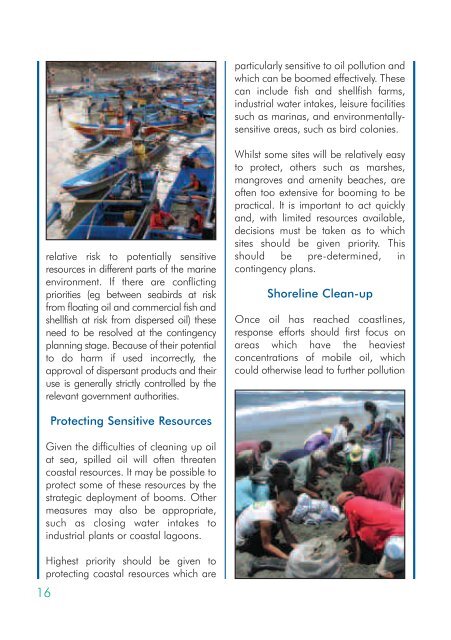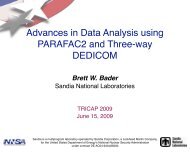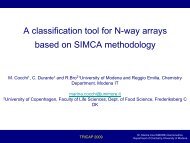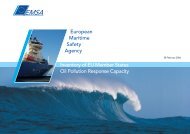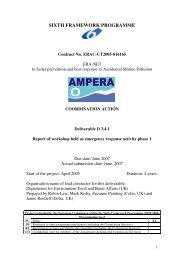Members Handbook 2002 - Centre d'Investigació i ...
Members Handbook 2002 - Centre d'Investigació i ...
Members Handbook 2002 - Centre d'Investigació i ...
Create successful ePaper yourself
Turn your PDF publications into a flip-book with our unique Google optimized e-Paper software.
particularly sensitive to oil pollution andwhich can be boomed effectively. Thesecan include fish and shellfish farms,industrial water intakes, leisure facilitiessuch as marinas, and environmentallysensitiveareas, such as bird colonies.relative risk to potentially sensitiveresources in different parts of the marineenvironment. If there are conflictingpriorities (eg between seabirds at riskfrom floating oil and commercial fish andshellfish at risk from dispersed oil) theseneed to be resolved at the contingencyplanning stage. Because of their potentialto do harm if used incorrectly, theapproval of dispersant products and theiruse is generally strictly controlled by therelevant government authorities.Whilst some sites will be relatively easyto protect, others such as marshes,mangroves and amenity beaches, areoften too extensive for booming to bepractical. It is important to act quicklyand, with limited resources available,decisions must be taken as to whichsites should be given priority. Thisshould be pre-determined, incontingency plans.Shoreline Clean-upOnce oil has reached coastlines,response efforts should first focus onareas which have the heaviestconcentrations of mobile oil, whichcould otherwise lead to further pollution16Protecting Sensitive ResourcesGiven the difficulties of cleaning up oilat sea, spilled oil will often threatencoastal resources. It may be possible toprotect some of these resources by thestrategic deployment of booms. Othermeasures may also be appropriate,such as closing water intakes toindustrial plants or coastal lagoons.Highest priority should be given toprotecting coastal resources which are


